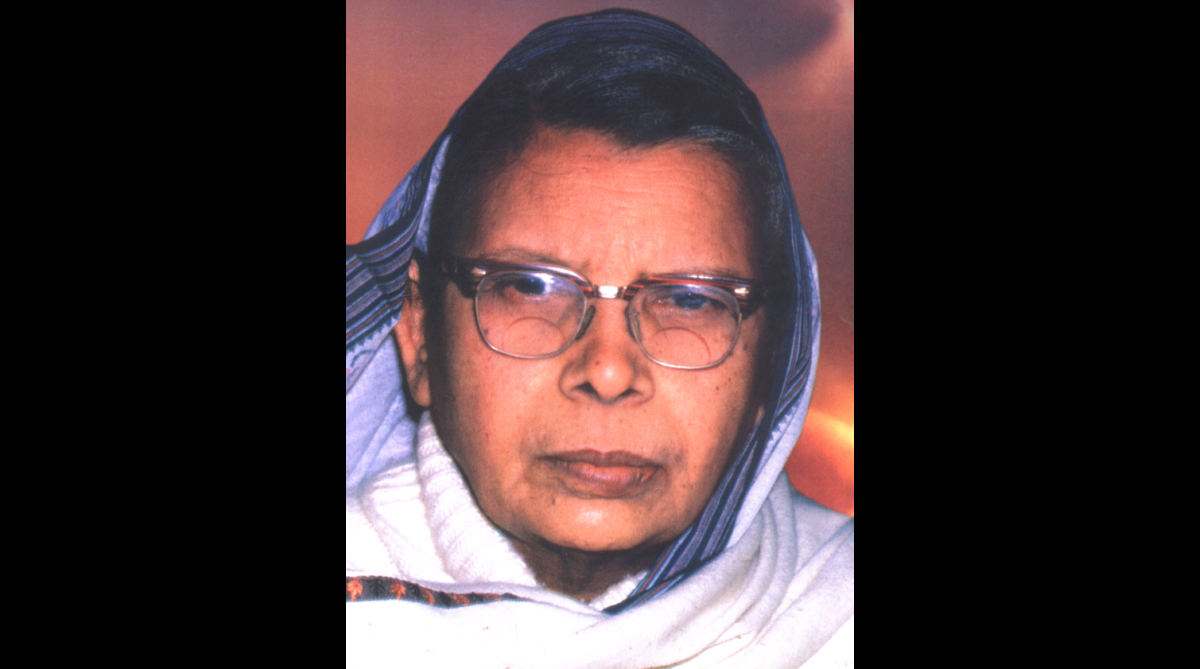Ustad Amjad Ali Khan, Kaushiki Chakraborty and others to perform at ‘Malhar and The Sea’ in Goa
Ustad Amjad Ali Khan’s sons, Amaan and Ayaan Ali Bangash will also be performing the ‘Songs of the River’.
Setting her life as an example, Mahadevi Varma paved a path for hundreds of women coming after her. In 1979, she was made a fellow at Sahitya Akademi, becoming the first woman to be given this distinction. Her collection of poems, Yama received Gyanpeeth award in 1982. She was granted Padma Vibhushan in 1988.

Mahadevi Varma. (Photo: Pratham Kailasiya/Wikimedia commons)
For any literature enthusiast, reading “Neelkanth” in Class 7 was a delight. Mahadevi Varma, one of the most well-known Hindi poets, knew how to make a simple story seem interesting.
Through her writings, she became a simple storyteller who would paint a canvas of the story that would come alive before one’s eyes. All through the school life, she remained just that, a storyteller with a knack for using ordinary words that expose extraordinary emotions.
Mahadevi Varma was born on March 26, 1907, on a Holi in Faarukhabad. At a time when girls were trained to be only a wife and a mother, Mahadevi Varma not only completed her education but also served as a teacher and headmistress of an institute.
Advertisement
Though born into a liberal family, Varma was married off at a tender age of 9 but stayed with her family until she completed her education. Her mother was fluent in Sanskrit and her father was a professor of English, giving Varma a great exposure to Indian and western ideologies.
It was her friend Subhadra Kumari Chauhan who discovered Varma’s hidden stack of poems one day. Encouraged by her to write and showcase her work, Verma started writing poems with Chauhan. In her memoir, ‘Mere Bachpan Ke Din’, she writes: “While others used to play outside, me and Subhadra used to sit on a tree and let our creative thoughts flow together…She used to write in Khariboli, and soon I also started to write in Khariboli…this way, we used to write one or two poems a day.”
Along with Chauhan, she is credited for breaking the male monopoly in Hindi poetry. Many observers have claimed Mahadevi Varma, also known as the ‘modern Mira’, could have received the Nobel Prize for poetry had her work been translated.
Varma is known as one of the four major poets of Chhayavaad (era of neo-romanticism in Hindi literature), along with Suryakant Tripathi Nirala, Sumitranandan Pant and Jaishankar Prasad.
It is a shame, however, that her poet persona has always overshadowed her feminist profile. Through her prose writings, she has vehemently attacked and questioned the way society treated women.
In ‘Chand’, a women’s magazine, she has published essays that tackle the issues faced by women. In these essays, she despite asking for women emancipation, also analyses the reason for women being denied freedom. Eleven of these essays were later published as “Shrinkhala ki Kadiyan”.
In “Ateet Ke Chalchitra”, she has penned the stories of a number of people who she met during her life. It is a biographical sketch where every story is dedicated to the life of an unsung hero.
Using her gift of writing unforgettable characters, Varma has boldly asked questions of widow remarriage, out-of-wedlock pregnancy, bigamy, child marriage. She is extremely critical of the certainty enjoyed by men and torment faced by women. At the same time, she is aggressive about women standing against women.
She is extremely aware of the shackles, ‘Bandini’ is the word she uses to describe herself. She constantly seeks freedom. There is a sense of mysticism in her poems, that often leads to a comparison with Meerabai.
Setting her life as an example, Mahadevi Varma paved a path for hundreds of women coming after her. She was awarded Padma Bhushan in 1956. In 1979, she was made a fellow at Sahitya Akademi, becoming the first woman to be given this distinction. Her collection of poems, Yama received Gyanpeeth award in 1982. She was granted Padma Vibhushan in 1988.
A feminist in days when women had no connection with the outside world, Mahadevi Varma tirelessly fought for women emancipation. Through her prose, poetry and profession, she served the mission of gender equality all her life.
It is her 31st death anniversary today. No longer with us, her ideas and views continue to make her immortal. A poet, a prose writer, an activist and most of all a dreamer, Mahadevi Varma continues to inspire with her writings.
Advertisement